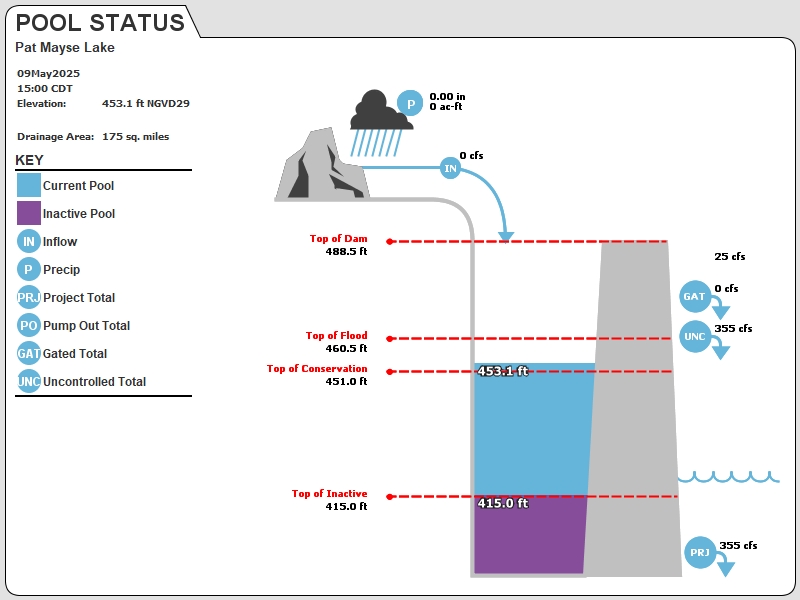- Home
- Departments
- Water Utilities
- Water Treatment Plant
Water Treatment Plant
Plant Information
The City of Paris Water Treatment Plant is a 36 Million Gallon per Day (MGD) surface water treatment facility supplying treated water to residential, industrial, and commercial customers. The City of Paris provides water to all of the city as well as most areas of Lamar County through contracts with Lamar County Water Supply District and the Marvin-Jennings-Clardy Water Corporation. Pat Mayse Lake is the primary source and Lake Crook is a secondary source of water for treatment. The plant is staffed by operators licensed by the TCEQ and is staffed 24-hours per day.
Treatment Methods
Chloramine, a combination of chlorine and ammonia, is the primary disinfectant.
Superior Public Water Supply
The City of Paris is designated as a Superior Public Water Supply System by the TCEQ, the highest designation available.
Annual Water Line Maintenance Program
Typically during February of each year, the City of Paris Water Utilities Department temporarily removes ammonia from the treatment process. The water remains safe to drink and for laundry, hygiene, and other uses. The purpose is to rid the distribution lines of organic matter ahead of high summer temperatures. The Paris Fire Department also flushes and grades all fire hydrants in the system each year during this time.
Current Pat Mayse Lake Level
This picture shows the current level of Pat Mayse Lake.
For more information, please visit the U.S. Army Corps of Engineers.
July 2023 Water Line Break
In July 2023 the City of Paris suffered a major water leak on a primary water line that serves the city. The issue was quickly resolved through quick action by city staff. Read more about the major break.
More information about treatment methods
Coagulation
The treatment process begins when water from the lakes is brought into the treatment plant. Initially, the water contains various particles of sediment and other impurities that need to be removed.
These microscopic particles are too small to settle out by themselves. Coagulation is a process that binds the particles together for easier removal.
Since the particles carry negative charges, they naturally repel each other, similar to how magnets with the same charge push away from one another. Coagulants, like ferric sulfate, have positive charges and neutralize the negative charges of the particles, allowing them to clump together, as opposite charges attract.
Flocculation
As the negatively charged particles and positively charged coagulants combine, they form larger particles known as floc.
Flocculation involves gently stirring the water, allowing smaller floc particles to collide and merge. This process causes the floc particles to continue growing larger and heavier as they interact and combine.
Sedimentation
The effects of coagulation and flocculation become evident during the sedimentation stage. Here, the floc particles, having grown large and heavy, settle to the bottom of a tank. The accumulated sludge is then removed, allowing the clearer water to pass on to the next stage.
Although the water is significantly cleaner after sedimentation, some particles may still remain.
The residuals left behind at the bottom of the basin are periodically removed and sent to a lagoon where it will eventually be used as iron-rich soil.
Filtration
The final step of the water treatment process, is running the treated water through rapid gravity filters using dual media filters (anthracite and coal over sand) to remove any remaining particles suspended in the water. The water is passed through these filters at a controlled rate and the remaining particles are captured in the filters and removed from the water.
Disinfection
After the water has been clarified, it undergoes a two step disinfection process to prevent infectious disease from spreading and to ensure water is safe for people and the environment. Disinfection is used to kill or inactivate pathogenic microorganisms (Disease causing germs) to ensure the water is safe for human consumption.
-
Brandon Lewis
Water Treatment SuperintendentPhone: 903-784-2464
